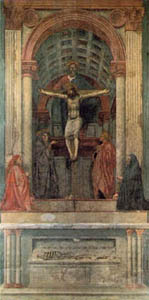The End of an Era... Let Us Pray.
~ Pope Benedict XVI
Well, after experiencing via the wonders of the web this morning some of the, well, event that playacted at being a Mass of the Latin Rite of the Catholic Church but was instead a forum for self-promotion and showmanship at how special, different, and diverse we all are here in AmChurch... I turned it off. I turned off the Pope's Mass. Work was more condusive to prayer.
Jeffrey Tucker manages to put into words exactly what I thought as I watched the Mass this morning:
Let us talk about principles.
In the name of "multiculturalism," the Pope was subjected to music more suitable to dingy dance halls than Churches. The Psalms of David were distorted to the point of ear-splitting dissonance. The congos, pan flutes, meringue rhythms, the jazz and blues and rock, the swaggering vocals, the puffed-up soloing, went beyond even the most pessimistic predictions.
Indeed, when Marty Haugen's Mass of Creation finally came on at the Sanctus, it was a moment of dignity—so much so that I want to take back all my negative comments back when I thought that this Mass setting was unsuitable for a Papal Mass. I don't think anyone knew before this what the phrase "unsuitable" could really mean.
I personally feel the greatest hurt toward American Catholics of diverse races and ethnicities, who have been quite viciously caricatured here. How wounded they must personally feel by this presentation done in their name.
Blues and jazz – intended to appeal to African Americans? What about those African Americans who sing in chant scholas, are accomplished singers, are working to actually compose excellent sacred music?
Meringue and samba for Hispanic Americans? Please. Does this include the Hispanic scholar who wrote me about an hour ago with heartbreak at what saw and heard? He is an expert in the polyphonic music tradition of Latin America, and has done extremely important work in showing how the themes from chant strongly informed the construction of 16th century mass settings.
And were all those wacky instruments somehow supposed to appeal to Asians? I really can't go on here. There is grave insult at the heart of all these attempts to construct styles that appeal to all people, pigeonholing their tastes the same way a racialist writing in the 1930s might do. This is not unity but dangerous division.
I know that none of this was intended, but let us remember that we are united in Christ, united in our Catholicism. The Pope has written in his book The Spirit of the Liturgy that the issue of multicultural was confronted and dealt with early in the Christian history, as the Roman Rite developed to deal with intense diversity of early converts from many regions and language groups. The result was the Latin language in liturgy, and Gregorian Chant and its timeless and universal sound, together with the text of the Psalms that speak to universal impulses in the human person. True multiculturalism is achieved in the Roman Rite itself, a point which is still emphasized in Church teaching.
Read all of Jeffrey's insights, including his very positive spin on what may come of this in the end, over at The New Liturgical Movement: Music for the D.C. Mass: The End of an Era, and the Beginning of Something New










0 Comments:
Post a Comment
<< Home